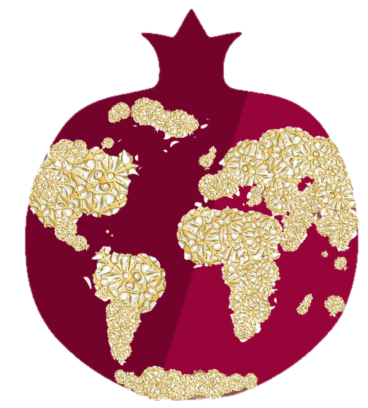The Belt and Road Initiative (Silk Road)
On the 15th October to the 20th October 2019, Pomegranate House was invited to participate in the 4th edition of the Asia-Africa Youth Entrepreneurs Forum working with All-China Youth Federation and Great Silk Way International in China, Beijing. The premise of the forum was to network and bring together entrepreneurs from Asia and Africa to create better partnerships within the Belt and Road initiative. Our founder Hana Mosavie attended; this post is written on the perspective of Hana.
The initiative was not only a brilliant opportunity for Pomegranate House, but an amazing experience to find out first-hand how the entrepreneurial experience has been for the other innovative individuals from the Belt and Road region. There were over 200 entrepreneurs from across Africa and Asia, each with their own opinions and approaches on the initiative. One participant from Nigeria had given an interesting presentation on the youth involvement within the region and believed China should provide a stronger element of involvement to succeed.
Despite the regional differences, culturally, politically, and religiously, the entrepreneurs unified through innovation. The involvement and progressive thought provided a platform of equality, humour, and an overall sense of accomplishment. It was liberating to have such brilliant minds collectively wanting to make a difference to the world. There were many that felt the difficulty to break from the mould of corruption, bad press, and lack of opportunities set the drive to build the opportunities themselves.
When it came to my turn to present, I had set the goal to bring awareness to diversity and gender dividends. My topic was focused on the cultural difference of management and opportunity. The Belt and Road initiative will provide a strong route of economic migrants to which would provide different cultural norms and difficulties. As we have seen, many NGOs or international corporations from the West do not adapt to the cultural norm within the international branch as effectively as they could. This also tends to highlight the higher tier of management that normally are from the company’s base country. Within the Belt and Road region there are hundreds of different cultural and linguistic differences, to manage effectively there needs to be a push to include the locals at a much higher level. I argued that regionally, gender discrimination was a subjective norm, measured normally by western standards the meaning and understanding the interaction between the two genders could have a more in-depth reasoning from cultural respect. I highlighted the importance of needing women in work and home life, which provided interesting debate after the presentation. Women tend to be undermined from ability to intellect. Oddly enough, despite all the atrocities that have befallen on women, women need men and men need women in life, and in the workplace to succeed.
Culturally, in a lot of the regions that were present, it is women that decide what is bought from the shops, how to run the household, what the children are being taught and the attitudes to everyday life. If we understand how important it is to market products, provide a female approach to initiatives, understand the opportunities to the woman of the household and allow half of the population of the demographic to be involved in top level decisions and work our economy globally and regionally would be boosted exponentially.
This discussion was taken on amongst my peers in Beijing, some disregarding my opinion completely and only speaking to a male friend of mine which kindly represented this opinion on my behalf. Cultural norms and understanding are known to different across the globe, but to be able to discuss a concept, may be at times more important than minor sexism from others. Overall, the time spent with these entrepreneurs provided an insight into the Belt and Road partnerships that showed efficiency and potential by to knowing how to communicate and work with one another despite cultural norms.
My seminar was initially to discuss how to work from West to East and vice versa. To understand these cultural norms in the opposite country. When in Beijing, it became obvious to focus on the audience’s ethnic diversity. The presentation mentioned NGOs' that are built and structured in the West that integrate and work within the East. The process can become limited due lack of cultural understanding of working styles and attitudes. This would, in turn, also impact the number of effective measures the NGO could have within that country.
The result of the conference was insightful, there was a platform for debate by individuals that would naturally ignore a woman’s perspective, this provided misconceptions to be discussed in depth and eliminated. I left with contacts from across the globe, friends, and a stronger understanding and insight into the ways of working within the Belt and Road initiative. Brilliant minds from a part of world that has yet to be acknowledged by the western world. Our generation is set to bring more peace and inclusive concepts to the world if based on this example alone.

